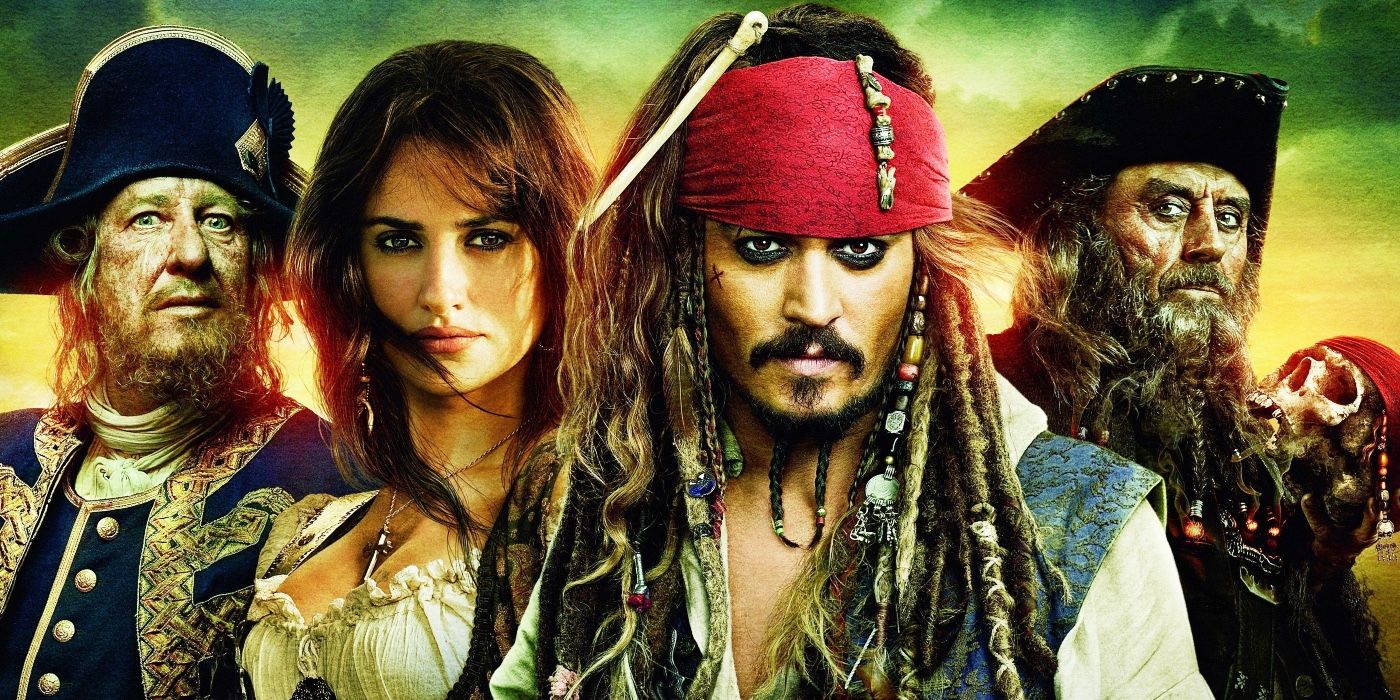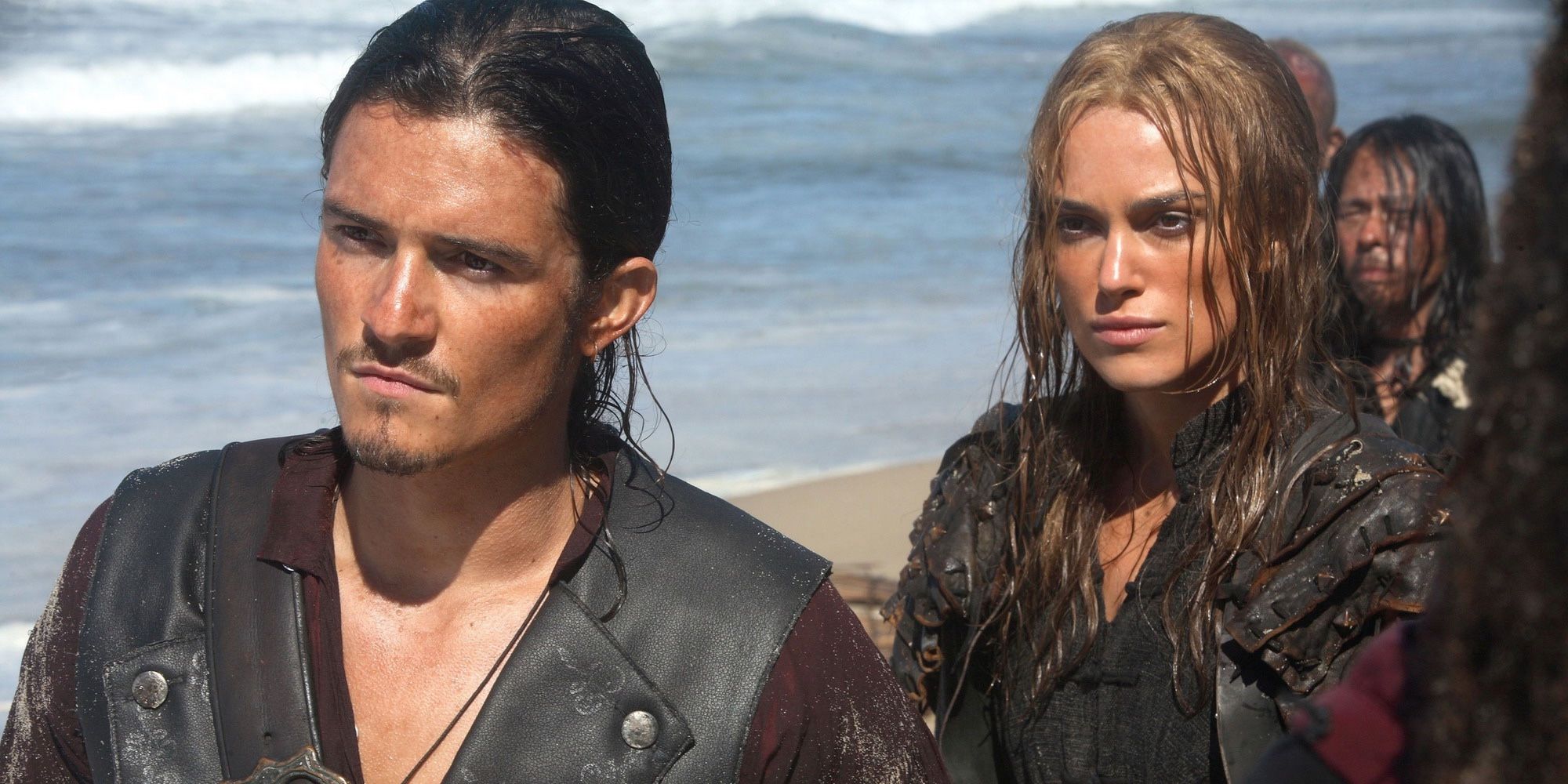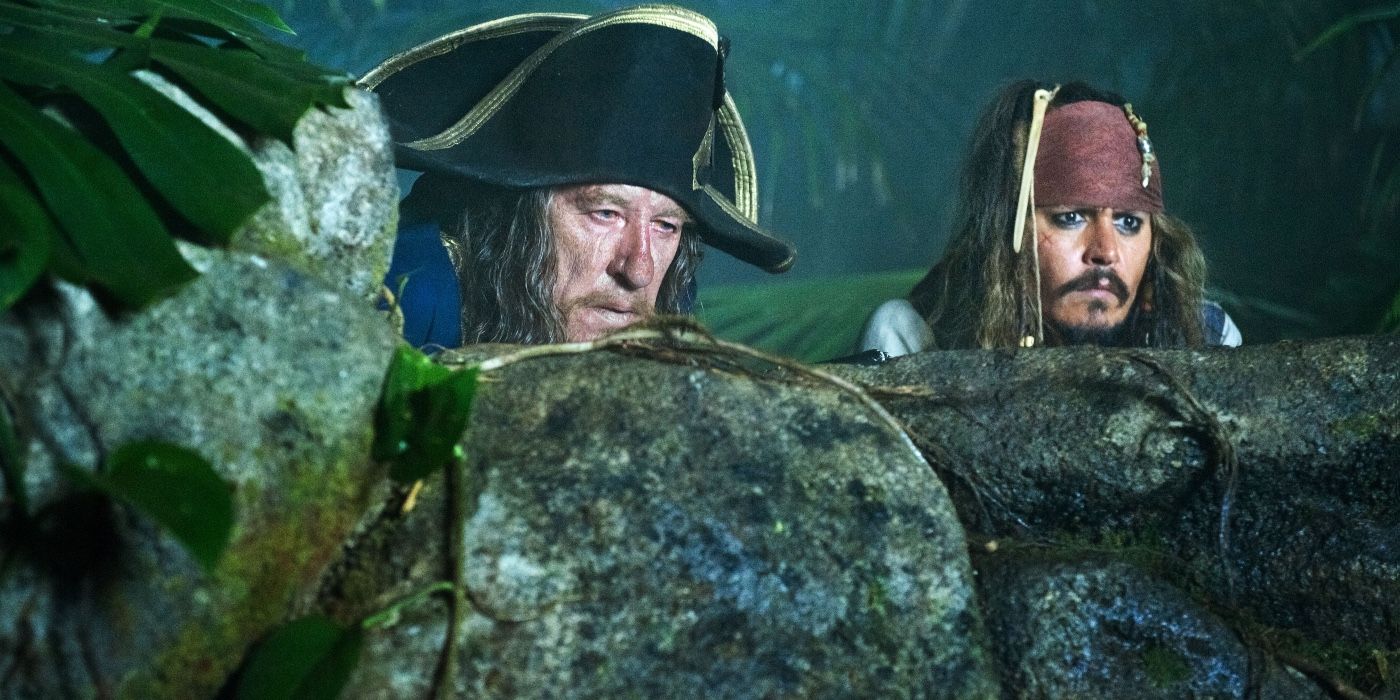
For all the box office treasure they've amassed, Disney's Pirates of the Caribbean movies have rarely fared well with critics. In fact, 2003's The Curse of the Black Pearl is the only entry in the high-seas adventure series to earn widely positive reviews. Yet, as flawed as the second and third films in the franchise might be, it wasn't until the fourth installment, 2011's On Stranger Tides, that the theme park-inspired swashbuckling property really took a nosedive in quality.
The film picks up where Pirates of the Caribbean: At World's End left things, with Jack Sparrow setting off on a whirlwind journey to locate the Fountain of Youth. While much of the cast and crew from the earlier Pirates movies returned for the fourth go-round, On Strange Tides saw key changes on both sides of the camera, starting with Rob Marshall taking over as director from Gore Verbinski. Orlando Bloom and Keira Knightly similarly did not reprise their roles as Will Turner and Elizabeth Swann, their characters' love story having reached a bittersweet yet satisfying conclusion in At World's End.

Therein lies the problem: with Will and Elizabeth out of the picture, Jack became the de facto protagonist of On Stranger Tides. Thing is, though, Jack is an inherently static character whose narrative function throughout the original Pirates of the Caribbean trilogy is to cause trouble. Meanwhile, the overarching plot revolves squarely around Will and Elizabeth's evolution from young lovers into a more mature couple of heroes who come to recognize the value of piracy and lawlessness when those in a position of authority are corrupt and power-hungry. Without them, On Stranger Tides lacks a real heart, and its attempt to make up for this by introducing Penélope Cruz as Angelica, Jack's old flame, falls flat because Angelica fails to bring out anything new in the rum swigging scoundrel.
The other major issue with On Stranger Tides is the filmmaking. Verbinski's directorial style, which uses darkly off-beat humor and revels in calling attention to unpleasant details, isn't for everyone, but it gives his Pirates trilogy its own distinct flavor. The storyteller also continually improved at staging massive set pieces throughout the course of the trilogy, culminating with At World's End climactic maelstrom battle. Marshall, on the other hand, specializes in flashy musicals like Chicago, and his inexperience shows in On Stranger Tides, which is full of costly yet curiously dull action scenes. What's more, the movie feels like an imitation of the previous Pirates films, but with the harder edges of Verbinski's style sanded down.

Although On Stranger Tides grossed over $1 billion at the box office, its lackluster reception clearly didn't go unnoticed. Its sequel, Pirates of the Caribbean: Dead Men Tell No Tales, tries to course-correct the series by bringing Will and Elizabeth's now-grown son Henry into the fold and incorporating a similar replacement for Elizabeth in the form of Carina Smyth, a young astronomer with her own ties to the greater Pirates mythology. Sadly, however, the film is undone by its convoluted plot and uninventive spectacle. It even reduces Jack to little more than a caricature of the rascally buccaneer first brought to life all those years ago in The Curse of the Black Pearl.
Commercially, Dead Men Tell No Tales was also a relative disappointment and ranks as the second lowest-grossing Pirates of the Caribbean movie to date. This is why Disney plans to revamp the franchise in some way, be it by making Pirates of the Caribbean 6 a quasi-reboot or moving forward with the spinoff that Margot Robbie is developing with her Birds of Prey writer Christina Hodson. It's debatable whether the franchise is salvageable at this point but, with the Mouse House determined to return to the high-seas, the studio would do well to take a hard look at On Stranger Tides and the reasons it pushed the property off-course in the first place.
0 Comments